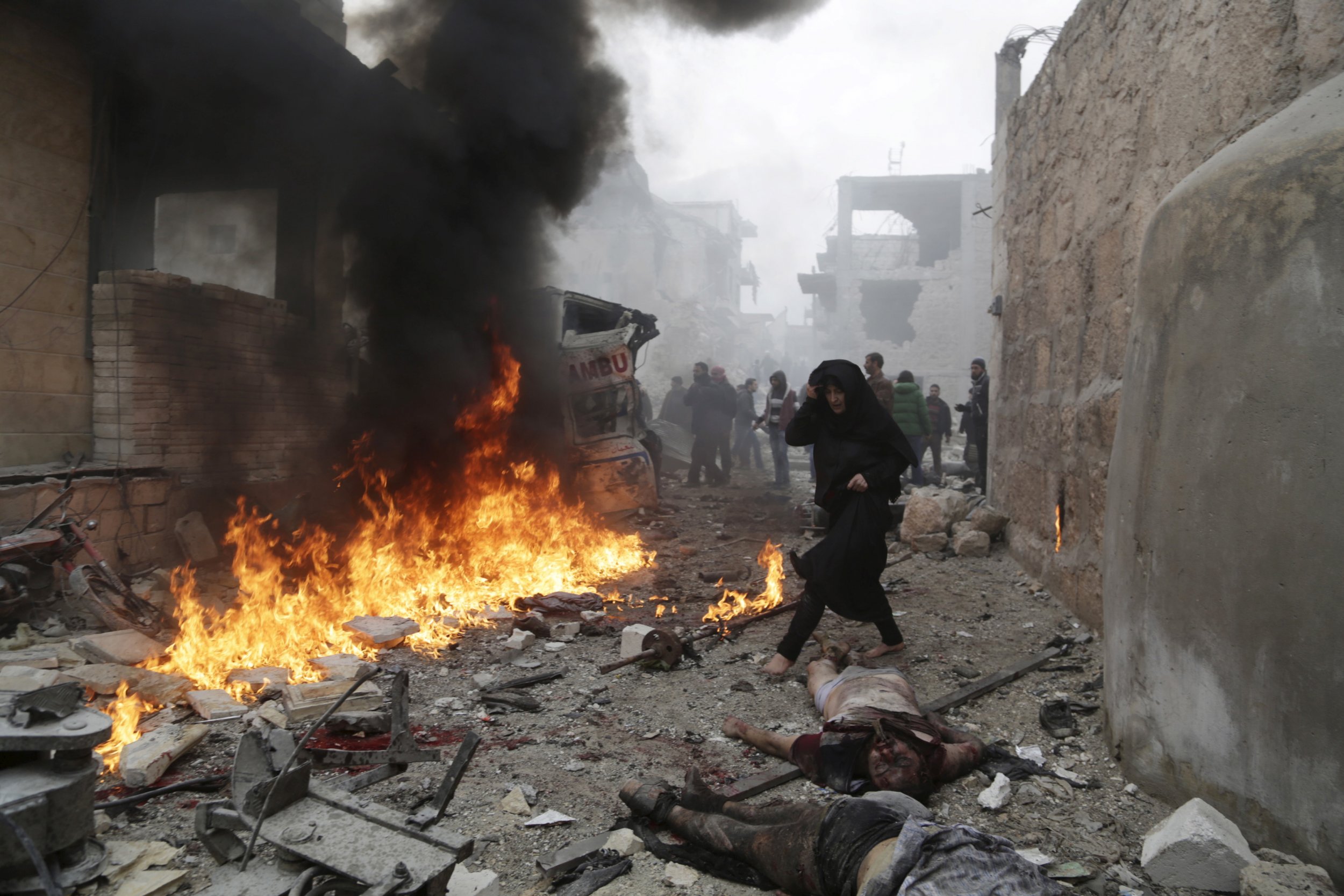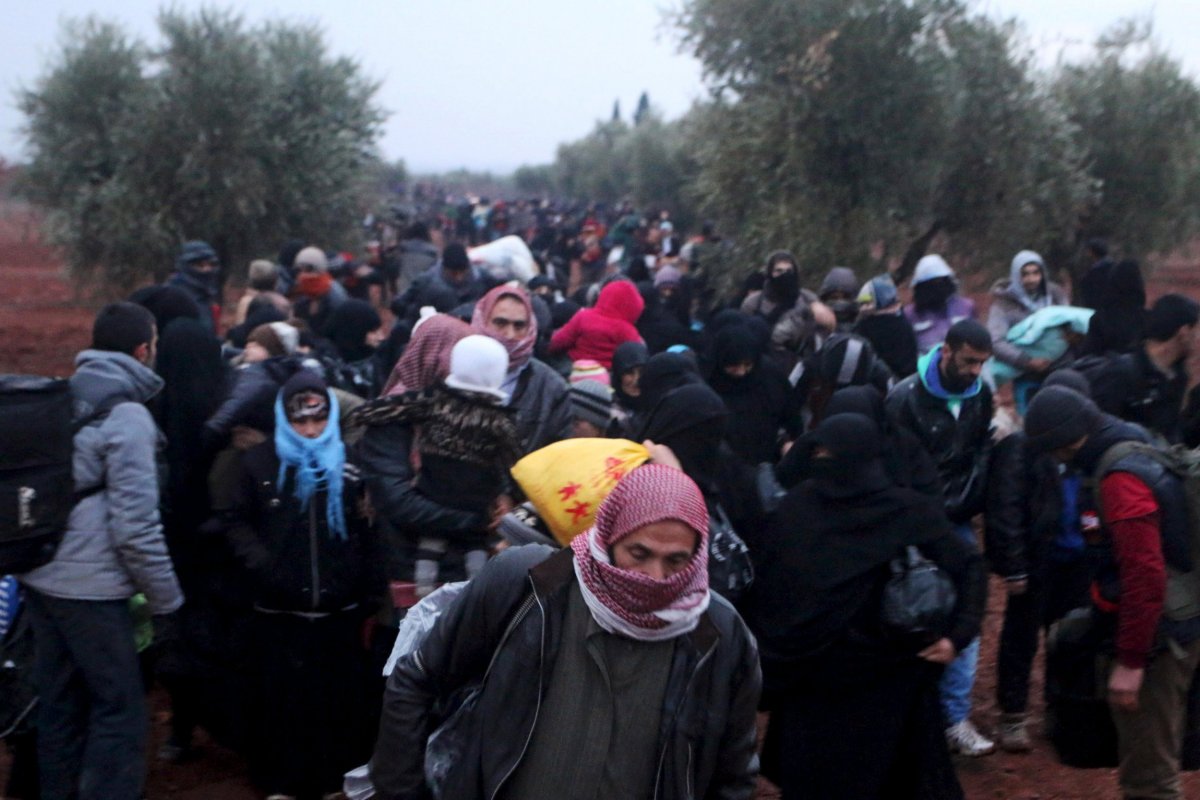
The next round of peace talks aimed at bringing an end to the five-year conflict in Syria are now due to start on Friday, a four-day delay from the original start date, Staffan de Mistura, the United Nations special envoy for Syria, said on Monday.
Speaking at a long-awaited press conference in Geneva on Monday, de Mistura put the delay down to a "stalemate" and "disagreements and different opinions about who should be on the list" of attendees. De Mistura said the delay was necessary to ensure the talks start on the right foot because "it will be uphill anyway."
Since war erupted in 2011, more than 200,000 Syrians have been killed, 4.5 million Syrian refugees have fled and millions of injured and internally displaced people remain inside the country. With the addition of extremist militant groups, including the Islamic State militant group (ISIS) and al-Nusra Front, into the fighting, the stakes for the talks are indeed high.
When Are They Supposed to Begin?
The talks, which were scheduled to begin on January 25, will now begin on Friday, January 29, and de Mistura will send invitations out on Tuesday. The main reason for the delay is because of strong disagreement over who will represent the Syrian opposition.
De Mistura made clear that "proximity talks," which will see Syrian government and opposition delegates meet separately, will begin on Friday and last for around six months. Hopefully the proximity talks will lead to more inclusive talks, dubbed "Geneva III." The first round of talks is expected to last between two to three weeks and there won't be an opening ceremony, he said.
Speaking from Laos on Monday, U.S. Secretary of State John Kerry said the several-day delay in talks allows key players to find "clarity" about the best approach to take.
"You don't want to start and have it sort of crumble on day [one]—you just don't want to do that," Kerry told reporters. "So it's worth taking a day or two or three or whatever. I'm all for that."

Who Will Be There?
The full list of attendees remains unclear at this point as de Mistura still has to send out the invitations. He provided little detail on the attendees during his press conference, but said that Syrian civil society groups and women will be included in the talks. ISIS and al-Nusra Front will not be invited as they are sanctioned by the U.N., said de Mistura.
The Syrian government delegation will be led by Bashar al-Jaafari, chief negotiator and Syrian ambassador to the U.N.
There has been disagreement over who will represent the Syrian opposition at the talks. The Syrian High Negotiations Committee (HNC), which represents numerous Saudi-backed opposition groups, said on Sunday that it was coming under pressure from Kerry to attend the talks, Reuters reports. The group has also said that it will not attend the talks until the Syrian government halts aerial bombardments, lifts blockades and releases detainees.
Last week, the Riyadh-based HNC said it would refuse to attend the talks if "external, foreign nations" impede negotiations and "insert third parties into the talks." The HNC referred explicitly to Russia which, with "the regime of [President] Bashar al-Assad use the term 'terrorist' to describe any man, woman or child who wants democracy in Syria," according to a statement the group released last week. Russia began its military involvement in Syria in September 2015 under the auspices of supporting Assad in the fight against ISIS, although the U.S. and other Western governments say Russia has targeted opposition sites and civilian areas.
It's also possible that representatives from the YPG, the Kurdish People's Protection Units, will attend the talks as part of the opposition. The YPG has fought in conjunction with U.S.-led coalition airstrikes to dislodge ISIS in northern Syria. However, Turkish Foreign Minister Mevlüt Çavuşoğlu said on Monday that including "terror groups like the YPG" would undermine the peace process.
What Are the Talks Trying to Achieve?
De Mistura said the first priority of the talks was to bring about a broad cease-fire and increase humanitarian aid. "Every day lost is a day lost for a cease-fire and for humanitarian aid," he said. Efforts to bring about peace have so far failed because of "the lack of trust and political will," he added.
De Mistura said on Monday that the the talks would eventually take on the governance of Syria, a new constitution and U.N.-supervised elections. The U.N. Security Council endorsed a plan for Syria peace talks in December and laid out an 18-month path to political transition.
What Happened Last Time During Geneva II?
De Mistura made multiple references to the previous Geneva talks in January 2014, saying "I have been very much aware of the dangers of what happened in Geneva II." Hosted by de Mistura's predecessor, Lakhdar Brahimi, the talks collapsed when a government delegation referred to the opposition as "terrorists" and refused to discuss Assad.
Uncommon Knowledge
Newsweek is committed to challenging conventional wisdom and finding connections in the search for common ground.
Newsweek is committed to challenging conventional wisdom and finding connections in the search for common ground.
About the writer
Before joining Newsweek, Lucy Westcott was an editorial fellow at The Wire. Previously a United Nations correspondent for the Inter ... Read more
To read how Newsweek uses AI as a newsroom tool, Click here.








